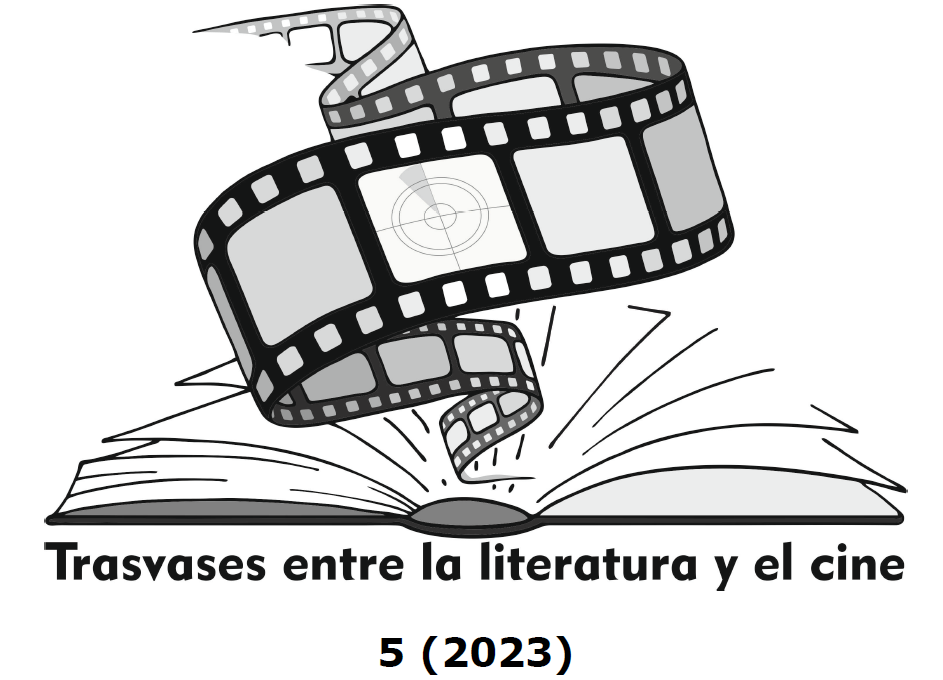Imagining Identity: From Molière’s comedy to Howard Hawks and Frank Capra
DOI:
https://doi.org/10.24310/Trasvasestlc.vi5.14524Keywords:
comedy, imagined identity, screball comedy, classical cinema, Hollywood, film analysisAbstract
Comedy plays with the transcendent importance of identity. An awareness of dramatic performance is a starting point in the quest for happiness. Identity transference is a feature of both traditional and modern relationships. This text proposes a comparative reading of certain aspects of Molière’s Le malade imaginaire, Howard Hawks’ Twentieth Century and Frank Capra’s It Happened One Night. Its starting point is a comic resource based on the adoption of a temporary and imagined identity by the character. The psychological liberation born of this new identity is related to a crisis that can be understood within the framework of the remarriage comedy studied by Stanley Cavell. The conclusion points out that the language of traditional comedy facilitates the understanding of the subversive potential of the modern subject and suggests that romantic conflicts can be understood or overcome by the imaginative responses of the characters.
Downloads
Metrics
Publication Facts
Reviewer profiles N/A
Author statements
Indexed in
-
—
- Academic society
- N/A
- Publisher
- Universidad de Málaga
References
CAVELL, Stanley (2007), Ciudades de palabras. Cartas pedagógicas sobre un registro de la vida moral, trad. de J. Alcoriza y A. Lastra, Valencia, Pre-Textos.
COUSINS, Mark (2005), Historia del cine, Barcelona, Blume.
DANIELS, Jeff (2012), «Aaron Sorking», Interview: <https://www.interviewmagazine.com/film/aaron-sorkin>.
SAINTE-BEUVE, Ch. A. (1955), Retratos literarios, trad. de J. B. Xuriguera, Barcelona, Iberia.
DE COULANGES, Fustel (1982), La ciudad antigua, trad. de A. Fano, Madrid, Edaf.
EMERSON, R. W. (2014), Ensayos, trad. de J. Alcoriza, Madrid, Cátedra.
FERNANDEZ, Ramon (1945), Molière, trad. de N. Lamarque, Buenos Aires, Schapire.
GIDE, André (2 de julio de 1941), Journal 1939-1949. Souvenirs, Gallimard.
HEREDERO, Carlos F. (ed.) (2016), Screwball Comedy. Vivir para gozar, San Sebastián, Filmoteca Vasca.
LOPATE, Philip (ed.) (2006), American Movie Critics. An Anthology From the Silents Until Now, Nueva York, The Library of America.
MCBRIDE, Joseph (1982), Hawks on Hawks, Los Angeles, University of California Press.
MOLIÈRE (1951), Obras completas, trad. de J. Gómez de la Serna, Madrid, Aguilar.
MOLIÈRE (2018), El avaro. El enfermo imaginario, trad. de F. J. Hernández, Madrid, Cátedra.
NICKEL ODEON (ed.) (2016), Screwball Comedies, Madrid, Notorious.
THOREAU, Henry David (2005), Walden, trad. de J. Alcoriza y A. Lastra, Madrid, Cátedra.
SÁNCHEZ BARÓ, Rossend (2016), La narrativa televisiva d’Aaron Sorkin. Forma, gènere i estil verbal, Universitat Pompeu Fabra [Tesis Doctoral en línea: https://www.tdx.cat/handle/10803/392150#page=3. Fecha de consulta: 11/03/2022].
SÁNCHEZ NORIEGA, José Luis (2018). Historias del cine. Teorías, estéticas, géneros, Madrid, Alianza.
SIKOV, Ed. (1989), Screwball: Hollywood’s Madcap Romantic Comedies, Nueva York, Crown.
WOOD, Robin (2005), Howard Hawks, trad. de Antonio Weinrichter, Madrid, Ediciones JC.
ZUNZUNEGUI, Santos (2007), «Acerca del análisis fílmico. El estado de las cosas», Comunicar. Revista científica de Comunicación y Educación, 29 (XV), págs. 51-58. [En línea: https://www.revistacomunicar.com/ojs/index.php/comunicar/article/view/C29-2007-09. Fecha de consulta: 11/03/2022].
Downloads
Published
How to Cite
Issue
Section
Categories
License
Copyright (c) 2023 Rebeca Romero Escrivá, Javier Alcoriza Vento

This work is licensed under a Creative Commons Attribution-NonCommercial-ShareAlike 4.0 International License.
All authors published in this journal accept the following copyright terms:
a. Authors retain their authors´ rights (copyright) and grant First Publication Rights to the journal, which whill be published under a the Creative Commons Attribution-NonCommercial-ShareAlike 4.0 International (CC BY-NC-SA 4.0) license. All about this license is available in the following link: <http://creativecommons.org/licenses/by-nc-sa/4.0>
b. Authors may separately establish additional agreements for the non-exclusive distribution of the version of the work published in the journal (e.g. including it in an institutional repository, or publishing it in a book) with an acknowledgement of its initial publication in this journal.
c. Authors are allowed and encouraged to disseminate their work electronically (e.g. in institutional repositories or on their own website) as this can lead to productive exchanges, as well as earlier and more extensive citation of published work.
The author is responsible for obtaining permission from the copyright holder when using copyrighted materials.
This electronic journal is published by University of Málaga (UmaEditorial), thus it is necessary to cite the origin of any partial or total reproduction.








22.png)










